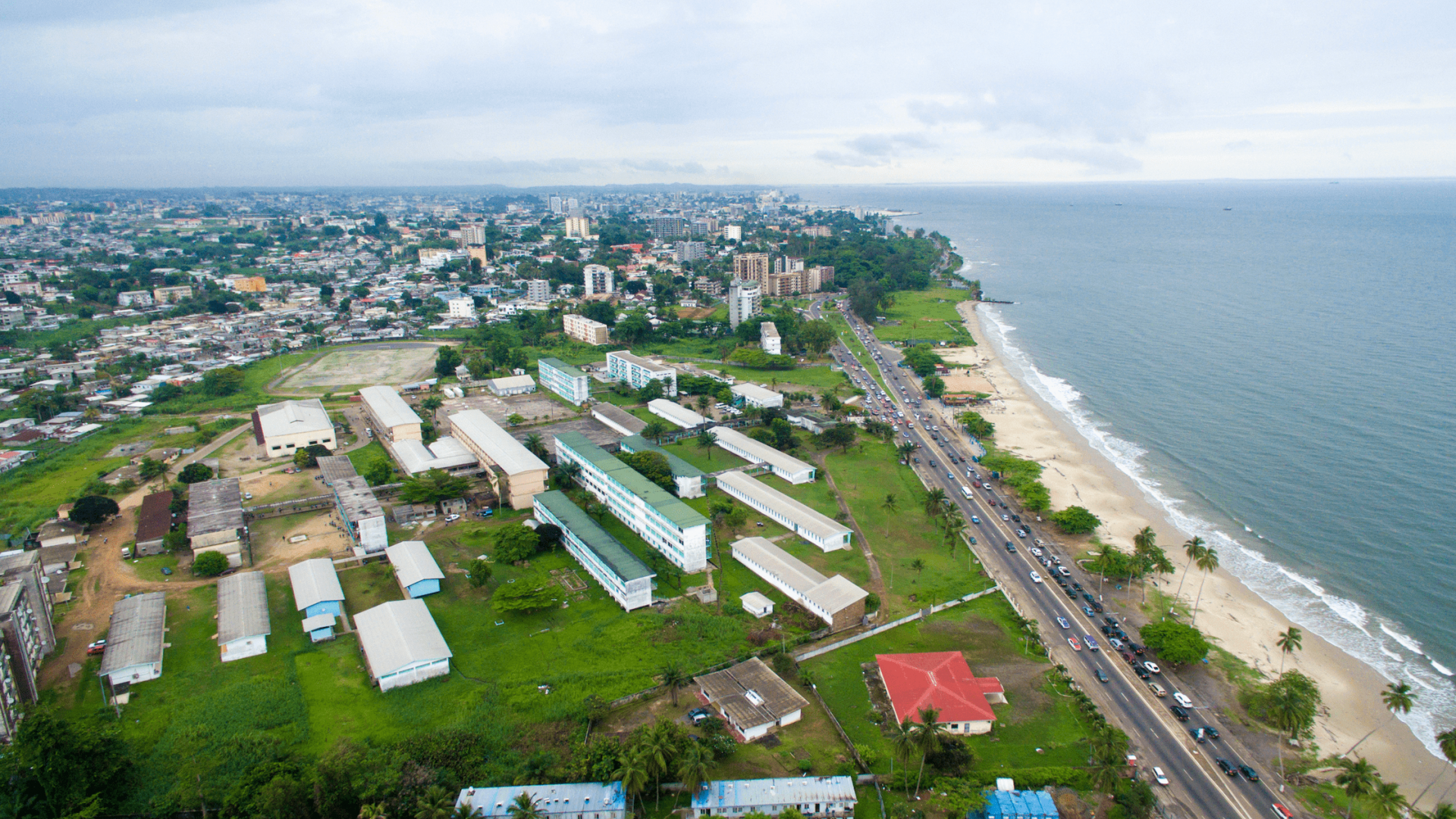
Overview and role of the EITI
Gabon's economy is heavily reliant on the extractive sector, which accounted for nearly 94% of the country’s total exports and 23% of its GDP in 2021. Gabon's extractive industry is dominated by petroleum and manganese production.
EITI implementation in Gabon offers a unique opportunity to transform transparency commitments into better governance of the country’s extractive sector through a multi-stakeholder approach. Gabon aims to use the EITI platform to enhance transparency in the extractive sector by strengthening disclosures, improving traceability and ultimately, creating value while enhancing the management of payments and revenues.
Gabon had formerly joined the EITI in 2007, but lost its status as an EITI implementing country when it was delisted in February 2013. Gabon rejoined the EITI in 2021.
Economic contribution of the extractive industries
- 46.3%
- to government revenue
- 93.5%
- to exports
- 23%
- to GDP
- 3.8%
- to employment
Innovations and policy reforms
Gabon is using EITI reporting to shed light on key reforms in the extractive sector, including anti-corruption, energy transition and oil costs.
- Gabon’s 2021 EITI Report describes the rules applied by companies to calculate cost oil, which recovers defined project costs specified by a production sharing contract. Work is underway to analyse cost oil through a separate verification report.
- The report discloses data on energy transition, including gas reserves, hydroelectricity and national electricity consumption. It also includes data on carbon emissions, along with government plans to reduce gas flaring and carbon emissions and promote solar energy. The report also offers insights into the country's carbon absorption capacity.
- The report presents an overview of Gabon’s legal and institutional framework for anti-corruption. It provides data on illicit financial flows (IFF) as they pertain to extractive sector exports and production, and outlines efforts to tackle corruption, including an overview of the national strategy for 2023-2030.
Extractive sector management
Tax and legal framework
Oil exploration and exploitation in Gabon are regulated by Law No. 002/2019 of July 16, 2019, enforced through decree No. 00112/PR. Specific conditions applicable to oil title holders are outlined in individual agreements between the government and oil companies, many of which were established prior to the adoption of the 2019 hydrocarbons code. Due to the principle of legal and tax regime stability outlined in various codes, Gabon currently operates under four regimes: the 1962 Code, the 1975 Code, the 2014 Code and the 2019 Code. Oil companies have the option to adhere to the regime established in the 2019 Code.
The Mining Code establishes the legal framework for state participation in the mining sector. It outlines the conditions for obtaining a permit and defines the various types of titles and their characteristics. Additionally, it details the rights and obligations of mining title holders and their relationship with the state. The code also includes the fiscal and customs framework for mining activities; sector-specific taxation for companies holding mining permits; rules governing health, safety and environment; and the reinforcement of local content.
Licenses and contracts
In the oil sector, licenses are issued by tender or direct consultation, conducted by the Hydrocarbons Administration. In the mining sector, The Direction Générale des Mines et de la Géologie (DGMG) generally does not issue invitations to tender for the granting of mining rights/permits, except in specific cases; rather, mining rights are granted based on applications submitted to the DGMG. In cases where two companies possess similar technical and financial capabilities and express interest in the same concession, the DGMG will award the permit to the first bidder. Article 9 of the Mining Code stipulates that exploration and mining activities are ensured by mining agreements, which establish specific technical and financial conditions in accordance with legal, financial, customary and social provisions.
The 2011 CEMAC Transparency Code on transparency and good governance stipulates that "contracts between the public administration and public or private companies, in particular companies exploiting natural resources and those benefiting from a public service concession, must be clear and made available to the public". However, contracts are currently not publicly disclosed.
Beneficial ownership
Gabon does not have a policy or a legal framework mandating the disclosure of beneficial ownership. However, Gabon’s 2021 EITI Report includes a definition of beneficial owner in line with Requirement 2.5 of the EITI Standard. While a template was distributed to extractive companies to report their beneficial owners as part of the EITI reporting process, none of these companies completed the provided template.
Revenue distribution
Payments from extractive companies to the state are managed through the state budget revenue collection system. Under this system, all payments are made in cash into a centralised account at the Treasury. Extractive companies make payments to several financial authorities, primarily the directorate general of taxes (DGI) and the customs department (DGDDI) for ordinary taxes, and the directorate for mining (DGMG) and directorate for hydrocarbons (DGH) for specific payments, such as signature bonuses and mining royalties.
With regards to subnational transfers, Article 58 of Law No. 037/2018 of 11 June 2019 stipulates that 60% of the extraction tax should be transferred to local authorities. However, no information is currently disclosed with regards those transfers.
EITI implementation
Governance
EITI Gabon is administered by the Gabon Multi-Stakeholder Group (MSG). The MSG is chaired by Léontine-Tania Oyouomi-Loumbou. It is comprised of representatives from government, industry and civil society.
Timeline
Gabon left
Government announces commitment to join the EITI
Multi-stakeholder group is formed
Candidature application is submitted
Application
Gabon joined
2021 EITI Report published
Report
Validation
For more information about planned Validations, consult the Validation schedule.
Key documents
Contacts

Ахмед Зуари
Советник по странам франкоязычной Африки и БВСА (MENA)

Нассим Беннани Кабчи
Региональный директор по странам франкоязычной Африки и БВСА (MENA)

Léontine-Tania OYOUOMI-LOUMBOU épouse BIBEY
National Coordinator, EITI Gabon, Economic and Financial Adviser of the Ministry of Oil Gas and Mines


